Regional Arab states to hurt most in case of war in region: IRGC commander
A senior commander of the Islamic Revolution Guards Corps (IRGC) has warned certain regional Arab countries against the adverse consequences of their cooperation with the United States and the Israeli regime, saying they will sustain the most damage in case of any possible war in the region.
In an interview with Lebanon's al-Manar television network, Commander of the IRGC Aerospace Division Brigadier General Amir-Ali Hajizadeh urged these regional states to rectify their policies, Tasnim news agency reported on Saturday.
“The US and the Zionist regime (Israel) have not brought security to any place and if something happens here (in the region) and a war breaks out, we will make no distinction between the US bases and the countries hosting them,” Hajizadeh said.
On Wednesday, two nuclear-capable American B-52 bombers flew over the Persian Gulf after nonstop flights to the region from their US-based hangars. It was the third time in six weeks that American bombers were conducting long-range flights off the Iranian coast.
The latest deployments came after the US Navy announced the arrival of a nuclear-powered submarine in the Persian Gulf last week. The USS Georgia passed the Strait of Hormuz accompanied by two American warships, making it the first missile-loaded submarine of its kind to enter the Persian Gulf in eight years.
The region has witnessed escalating tensions since outgoing US President Donald Trump accused Iran of playing a role in attacks on the American embassy in Iraq late last month, which Tehran has dismissed as false flag operations.
Iran’s Permanent Mission to the United Nations in New York on Thursday warned against the United States’ “military adventurism” and recent provocative moves in the Persian Gulf region, at a time that the administration of the lame duck US president nears its final days.
The Iranian mission issued a stern warning in a letter to the UN Security Council and said the US has ramped up its military presence and activities in the Persian Gulf and the Sea of Oman in recent weeks.
Read more:
-
FM Zarif: Iran doesn’t seek war, but will ‘openly & directly’ defend its people
-
Iran has braced itself to face any possible scenario, IRGC chief says
Elsewhere in his interview, the IRGC commander once again asserted that Iran’s missile power would never be subject to negotiations, saying, “We will not negotiate about the missile power with anyone,” stressing, “This is our red line.”
Hajizadeh emphasized that Iran has decided to restrict the range of its missiles to 2,000 kilometers on its own volition, dismissing any external force behind the decision.
He, however, reiterated that such limitation on the range of Iran’s missiles is not permanent.
He said Iran backs any one fighting against the Tel Aviv regime, adding, “Gaza and Lebanon are at the forefront of this battle and everything you see of their missile capability has been supported by the Islamic Republic of Iran.”
“Instead of giving them a fish or teaching them to catch a fish, we taught our allies and friends how to make a hook and they are now in possession of [missile] capability and technologies,” the senior IRGC commander added.
He emphasized that the Israeli regime is currently at a “crossroad of fire” coming from Palestine, Lebanon, Syria and other Muslim countries, noting that Iran’s friends are now equipped with missiles with pinpoint accuracy.
Hajizadeh further pointed to a series of precision missile strikes by Iran at the American Ain al-Assad air base in Iraq in retaliation for the US assassination of the country’s senior anti-terror commander Lieutenant General Qassem Soleimani and said such attacks were only aimed at breaking the US prestige and hegemony.
The senior commander added, “We were prepared for the Americans’ response and all our missile power was fully on alert. If they had given a response, we would have hit all of their bases from Jordan to Iraq and the Persian Gulf and even their warships in the Indian Ocean.”
On January 8, 2020, the IRGC fired volleys of ballistic missiles at Ain al-Assad military base in the western Iraqi province of Anbar in response to the January 3, 2020 assassination by US military of General Soleimani, Abu Mahdi al-Muhandis, deputy head of Iraq’s Popular Mobilization Units (PMU), and their companions outside Baghdad International Airport.
The cowardly act of terror was carried out under the direction of US President Trump, with the Pentagon taking responsibility for the strike.
Read more:
Hezbollah strikes Israeli bases with drones, missiles
Iran calls for action in defense of Palestinian women
VIDEO | Sydney protests demand action as Israel faces ICC warrant for war crimes
VIDEO | Arrest warrant for Israeli war criminals
Iran to host ‘important’ ECO foreign ministers' meeting in Mashhad
Wounded in Israeli strike, health of Kamal Adwan Hospital's director worsens
VIDEO | Press TV's News Headlines
Iran reports 11% drop in domestic red meat supply


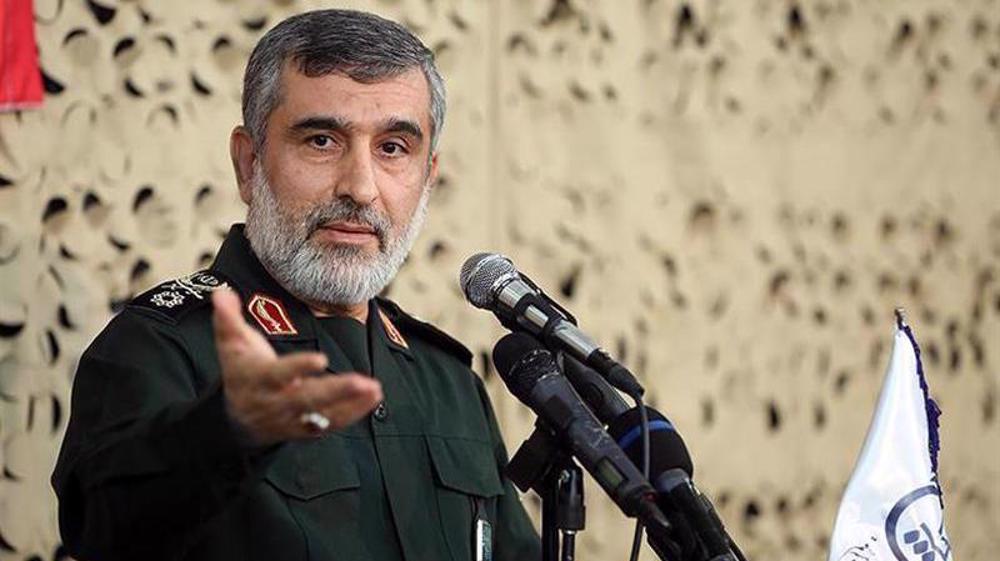



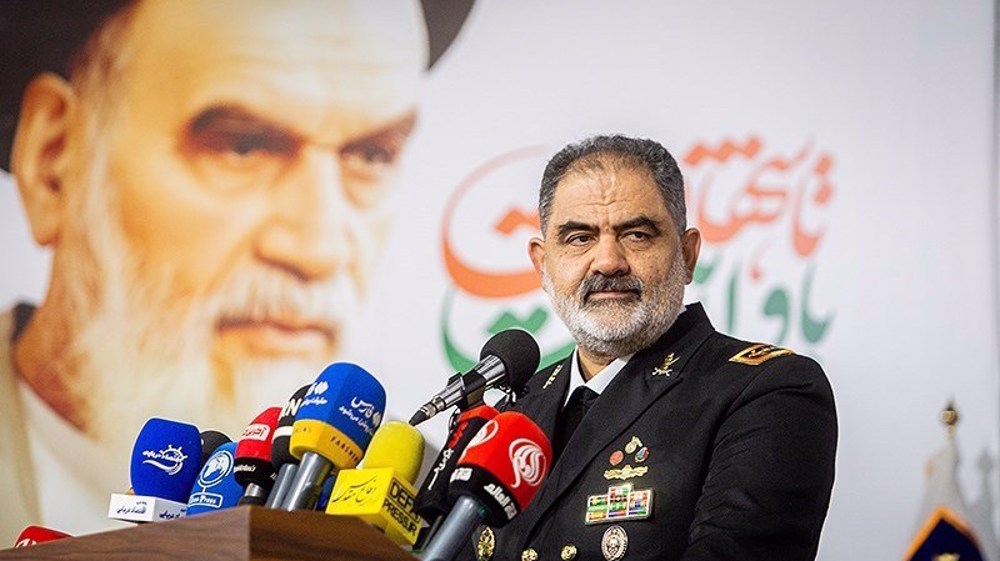
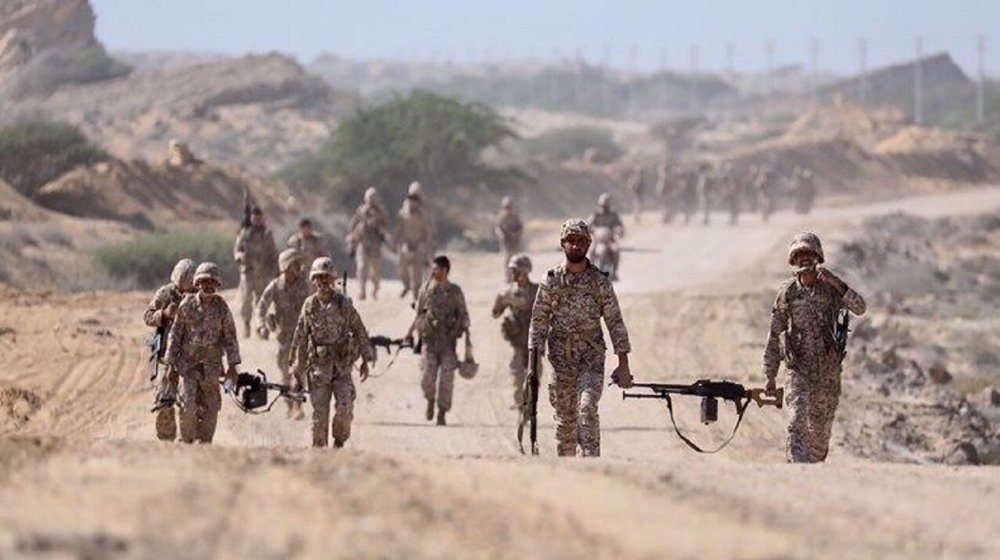
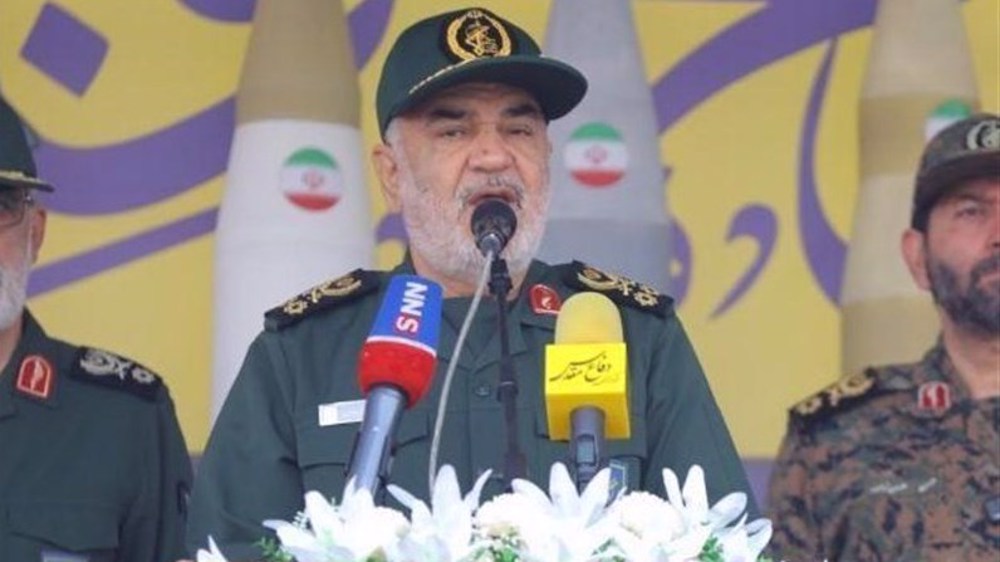



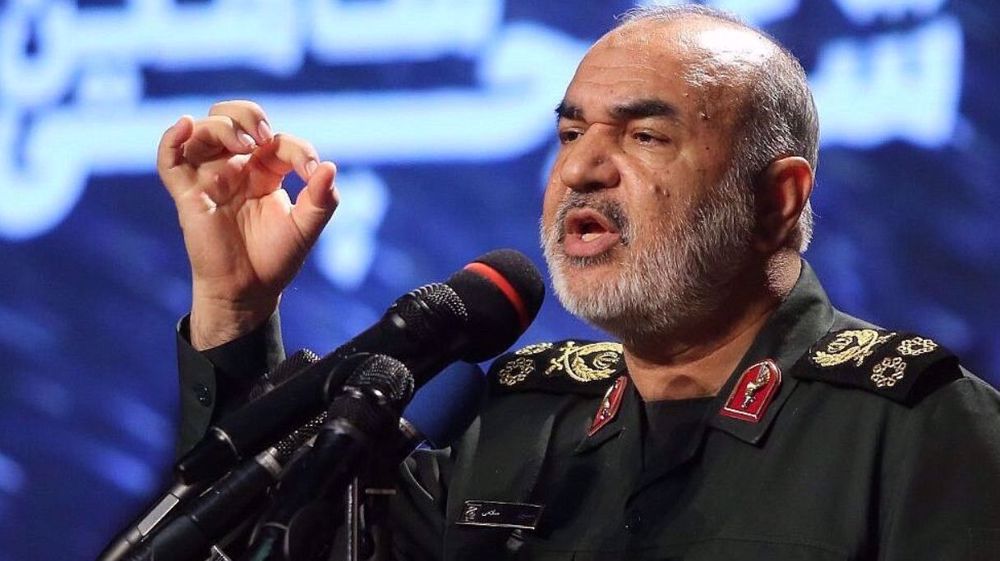


 This makes it easy to access the Press TV website
This makes it easy to access the Press TV website